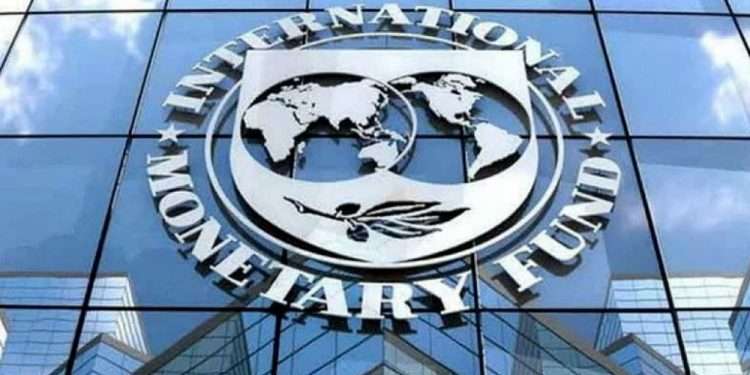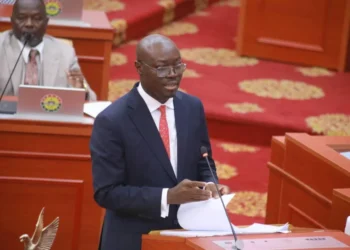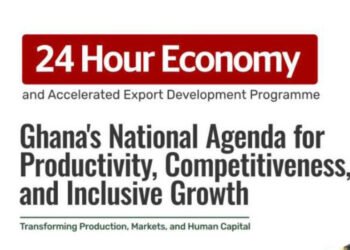The Ghanaian economy is exhibiting signs of recovery and resilience, according to recent analysis from Dr. Priscilla Twumasi Baffour, an economist at the University of Ghana.
With a downward trajectory in inflation, a relatively strong performance of the cedi, and signs of fiscal discipline, she believes the country is gradually steering back on course toward its economic goals.
Dr. Baffour highlighted that the key macroeconomic indicators suggest the economy is stabilizing.
Inflation has continued to decline, the local currency has shown notable resistance against external pressures, and revenue and expenditure metrics are in alignment.
“In terms of the key issues such as government revenue and expenditure, overall, you can say that the economy is on track to achieve a lot of the projections within the year.”
Dr. Priscilla Twumasi Baffour
Dr. Baffour also touched on Ghana’s Gross Domestic Product (GDP) performance. She noted that although the official end-of-year growth projection remains at 4%, the first half of 2025 has already seen an expansion of 5.3%.

This suggests that the official growth target may be overly conservative, considering the current momentum. “And so in all, we can see relative stability in the economy,” she observed.
However, she also emphasized that true progress lies in sustaining this current economic stability over time. Temporary improvements are not sufficient for long-term prosperity.
“Businesses need stability over a long period of time,” she added, indicating that consistency is crucial to fostering private sector confidence and investment.
Disciplined Spending Stabilizes Ghana’s Economy
Dr. Priscilla Baffour also acknowledged the role of Ghana’s ongoing engagement with the International Monetary Fund (IMF).
She explained that under such support programs, governments are expected to prioritize austerity—keeping expenditures under control while consolidating fiscal performance.
So far, Ghana appears to be adhering to these expectations, a move she sees as pivotal to current stability.

“Government expenditure has really been constrained. The government has been very conservative. Borrowing appetite is very low. You see that rates have really come down, particularly when you look at treasury bill rates, which are a good indicator of the government’s appetite for borrowing.”
Dr. Priscilla Twumasi Baffour
As borrowing costs decrease, it reflects the government’s reduced reliance on short-term debt to finance its operations.
This approach, Dr. Baffour noted, underscores a broader policy orientation toward macroeconomic discipline.
The economy is being managed with an emphasis on preserving the stability that has been achieved so far. But she cautioned that stabilization alone is not enough.
“But then post-stability is growth,” she remarked, signaling that Ghana must now pivot toward a more proactive agenda to drive expansion, job creation, and sustainable development.
Growth Strategy Critical In Mid-Year Review
As the Finance Minister, Dr. Cassiel Ato Forson, prepares to present the mid-year budget review, Dr. Baffour stressed the importance of outlining a clear and intentional growth strategy.
While stabilizing the economy has been commendable, the next phase must focus on leveraging this foundation to stimulate investments and employment.
She expressed interest in how the government will approach this transition. Ghana must now seek to attract the necessary capital and implement policies that enhance productivity across sectors.

The forthcoming budget review will be an important opportunity to communicate this shift in strategy and policy direction.
Dr. Baffour reiterated that while current progress may not be surprising—especially under an IMF-led stabilization regime—it is nonetheless critical to preserve these gains.
According to her, sustained economic improvements will require both prudent macroeconomic management and bold steps to catalyze growth in the coming quarters.
The economist’s reflections serve as a reminder that Ghana’s road to recovery will not be a sprint, but a carefully managed marathon.
The right balance between fiscal discipline and growth stimulation will be essential to maintaining public confidence and attracting investment.
READ ALSO: TOR, BOST Sign Strategic MoU to Revive Downstream Petroleum Sector






















